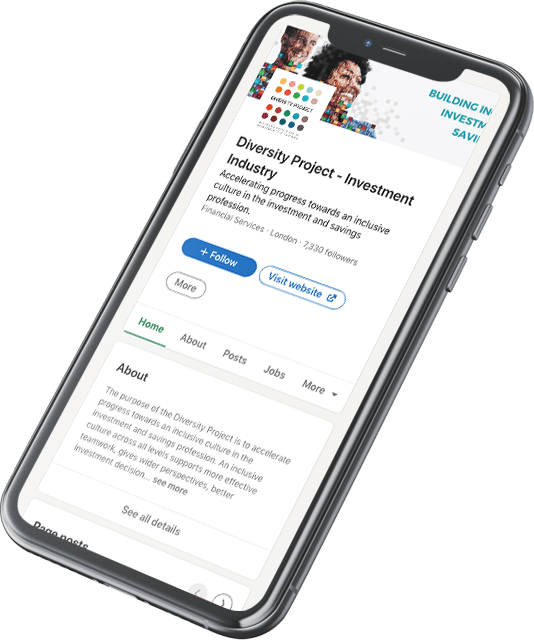Lee Elliot-Major, the first UK professor on the subject (via Exeter University) and former CEO of the Sutton Trust, got involved with these issues long before the Social Mobility Commission was set up or the latest ‘levelling-up’ agenda took hold. An academic by profession, Elliot-Major advises the UK government – as well as others – and is a regular spokesperson in top-tier media.
The following quote of his neatly sums up both the moral and the business case for greater socioeconomic diversity:
“In a civilised society, there should be no link between educational opportunities and family income, so that all young people are given the chance to fulfil their potential regardless of their family background school or where they live. … Greater social mobility is beneficial to society in a number of ways. Improved social mobility leads to better matches between people and jobs and the talents of all members of society recognised and nurtured and barriers to accessing jobs are reduced.”
Could you just elaborate on this and explain your thinking on social mobility?
The social mobility debate has evolved over the last decade or so, in a couple of ways. One is that it is not just put forward as a moral case anymore. Important as that is, an economic and business case is emerging.
If you have low social mobility, then you are missing out on talent; by definition, you are missing out on people who have not fulfilled their talent. However, you are also missing out on diversity in the workplace. Many studies show that all forms of diversity are good for working practices as it tends to lead to more varied inputs into decisions and helps better reflect the customer base of businesses.
Most countries are interested in this area. I think that is because most countries have a modern capitalist model and that implies a tacit acceptance that you can have inequality of earnings – i.e. people can earn lots of money compared to others. But that only works if you have equality of opportunity; if everyone has the chance to pursue what they want. This line of thinking implies there is a macroeconomic case as well as a business case.
The other thing that has evolved is ten years ago there was an assumption that people would be shoehorned into a middle-class culture – so you make someone like myself (first in family to go into higher education) become middle class and fit into the workplace culture. The debate is more interesting now; we are actually challenging the cultures themselves, so that they become more inclusive of people from different backgrounds. It is more about inclusion and diversity rather than simply fitting in.
Why do you think that social mobility, but perhaps more specifically socioeconomic diversity, has been left behind within the diversity, equity and inclusion debate?
There are lots of reasons. We have had some huge global events – like the MeToo and Black Lives Matter movements – that have given an impetus to important debates and rights around gender and ethnicity. We’ve just not had one of those moments yet for social mobility.
It is also more complex. I am conducting a review for an organisation the moment and there are literally hundreds of definitions out there. Academics have differing views on it. We all know the class matters instinctively, but how do you measure it?
We are also still deeply sensitive about it. Several people set up social mobility networks but are then embarrassed to disclose are from a working-class background It has become the last taboo of diversity in some ways.
“It has become the last taboo of diversity in some ways.”
At the same time, we know from public surveys that 60 per cent of British people claim to be working class when clearly that can’t be the case – there just isn’t that number of working-class people in the population. There are also many people who put on mockney accents to try and hide their privileged backgrounds.
As I said, it is a complex issue. But that is why I wrote a piece for the FT calling on organisations to embrace social class diversity in the way that we are looking at other diversity characteristics. It has become a mini campaign of mine to get companies to think much more deeply about how and what should they do?
Do you think socioeconomic backgrounds should be a protected characteristic?
I wasn’t involved in the discussions on the UK Equality Act in 2010 and so I don’t know the full reason as to why it wasn’t included. However, it was very likely related to measurement.
The unfortunate reality is that, if it is not legally driven, it goes down the corporate priority list and doesn’t get the attention it deserves in big, busy organisations. However, most current diversity work is flawed if it is not considering social-class backgrounds – it cannot really be seen to be doing diversity in the fullest sense.
“However, most current diversity work is flawed if it is not considering social-class backgrounds – it cannot really be seen to be doing diversity in the fullest sense.”
There has been some progress. The government completed a review a couple of years ago to assess the different socioeconomic background measures and asked various people about their views on how robust and reliable the measures were. The consensus was that one question provides the single best proxy and that is: What did your mum and dad do for a living when you were 14?
Now, there are lots of challenges to this in the academic literature, but it is the most widely accepted way of reaching a social-class definition and is fast-becoming the standard for employers. Alongside that, you have questions like whether you attended a state or private school, eligibility for free school meals and whether you were the first in your family to go to university. These three are really intended as supplementary questions.
You do get some organisations challenging this approach because they think of social class in a broader sense and some sociologists would agree. They argue social, economic and cultural capital defines class, and we are a function of not just how much we earn and the jobs we do, but who we know, what cultural assumptions and tastes we have, and so on. The problem is that this is far, far harder to measure.
You recently conducted some analysis of FTSE 100 companies and their commitments to social mobility. Could you explain your findings?
We did something very simple. We just looked at the diversity and inclusion strategies of FTSE 100 companies. What we looked for was what I call the basecamp (or basic) things you need to do when considering socioeconomic diversity.
We trawled through the various annual reports to see whether social class, social mobility or socioeconomic background was mentioned in their diversity and inclusion (D&I) strategies. We found that very few FTSE 100 companies even mentioned social class.
Then we looked at whether there was any reference to socioeconomic background data being gathered in terms of employees, and whether there was a social mobility network for staff. The results were startling.
We found that only 12 out of 100 could make any claim to be embracing socioeconomic diversity. And to be honest, we were being pretty generous in our interpretation. It is hard to know whether the references in reports are actions or mere words. But we found that over half of FTSE 100 companies don’t even mention social class in their annual reports or D&I strategies.
This is alarming. And it mirrors research in the US which shows companies aren’t prioritising it as much as gender and ethnicity. One American study showed the percentage gap in probability of becoming a senior manager for working class versus middle class was bigger between social class than it is between gender. I am always careful when highlighting this because I don’t think these things are either/or. If you are embracing socioeconomic diversity, it should help your ethnic minority and female employees as well. These things are interconnected in so many different ways.
What do you recommend companies should do to improve their record in this area?
I have already mentioned ‘basecamp’ – i.e. is it part of your D&I strategy and are you gathering data?
You also need to set up networking groups and mentoring programmes; ones that are explicit and formal and identify those that might not have the support. Lots of studies show that when mentoring happens informally, those from privileged backgrounds tend to benefit. But to really go to the next level, I tend to think about this in terms of three Ts.
Talent is first.
Talent is first. Organisations and hiring managers need to think about talent in different ways; and that means thinking about apprenticeships as much as graduates. Diversifying your pipeline of talent is really important. I would also challenge selection processes in most major employers. The classic example is the interview. An interview is essentially a performance; it is being able to be competent in front of other people in a pressurised situation. We should challenge ourselves more on how we describe and, more accurately, assess the skills we need for different jobs. Instead of using middle class proxies of competence articulacy, we should try harder.
Targets are the second factor.
Targets are the second factor. A good example here is KPMG, which has set explicit targets for its middle managers and other employers should explore this. You do have to be careful with targets because they can be crude, distort behaviour and lead to box ticking. But we have targets in other aspects of business, so maybe we should start thinking about them for social mobility.
Finally comes the top
Finally comes the top – by which I mean the C-suite and getting buy-in at the most senior levels. Regardless of what people say, culture starts from the top: the CEOs, the boards, and the executives. You need to really think about your culture as a company. Even to this day, I still feel a little alienated when I go into certain organisations as I am not part of the dominant, middle-class culture. If you don’t have someone at the top thinking these things through and being mindful of them, then it is very hard to change the culture.
Staying the C-suite theme, do you think there is a danger of a ‘socioeconomic drawbridge’ being pulled up as is sometimes the case with gender (i.e. women doing well and then not necessarily helping some of their other female colleagues to get ahead)?
Great question. When I was Sutton Trust chief executive, I used to fundraise a lot. I went into many firms, mainly bankers and hedge funds. I would do the research beforehand – i.e. Who are they?, What’s their background?, Did they come from a poor background or were they always privileged? And it was very hard to predict whether they would give money to a charity dedicated to social mobility.
It was roughly 50/50. One half felt lucky and fortunate to have made it – clearly all these people had talent, but this half would remember the lucky breaks. The other half were more: ‘I’ve done this; so if I can do it, then anyone can’. You have just got a hope that there are enough leaders who get into those positions and don’t then pull up the drawbridge.
I wish we had more studies on what it is that makes people change their attitudes to social mobility – going from a purely individualistic to a community mindset. For example, I am convinced that the collective cultures of Scandinavia have a more collective sense of success. From my understanding, you are basically berated if you gloat too much about success. I am therefore always mindful with any success I have and reflect on who has helped me along the way. Very few people are lone geniuses.
We have some pretty major issues running through society right now. The digital revolution, climate change, and COVID-19 – which one of those factors, if any, do you think is most affecting social mobility?
The post-pandemic era has highlighted, exposed and exacerbated some of the inequalities we are talking about here. The interest in mainstream media has grown significantly.
This is a good thing; we are talking about it more. But it has exacerbated divides. What shocked people was the number of children living in homes that don’t have digital connectivity as we understand it; or don’t have any study space; or are living lives that are incredibly challenging and disruptive. Some of these issues also extend into adulthood and the workplace.
There has definitely been some poverty blindness in this country and with people increasingly living in their own social enclaves there is less understanding of people from other backgrounds. There are people in the UK who are profoundly poor and it is great that people like Marcus Rashford have highlighted some of those issues.
I am sorry to be pessimistic. Perhaps to finish on a more positive note, the agenda is becoming more mainstream now. I can tell you that simply from the number of requests I get from the media – which is almost daily. I just hope that all this attention translates into real action. And that instead of merely talking about it, we actually do something about it.






